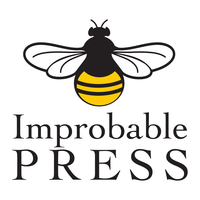
I read all kinds of interesting stuff. How moths drink the tears of sleeping birds. That flour is explosive. That Marie Curie's belongings will be radioactive for 500 years. And there are probably at least 500 billion galaxies.
These are little facts that are a delight just for knowing, or for knowing so you can add them to a story and give it a wee bit of crunch.
Crunch?
Crunchy facts are those chewy, spikey, textural bits of minutiae that give your story complexity. So says novelist and songwriter Narrelle M Harris, who made up this tasty term.
Crunchy facts are those details we come across that make us spin like over-excited tops, thinking "GAH! This is so cool, I have to put it in a story!" (Me, I'm talking about me.) They're little or big things like:
- HOLY CRAP! Goat milk and chicken meat can both kill you if…the goats have eaten mountain saffron or the hens have supped on mountain laurel. (Is this now your secondhand way to bump off a character?)
- WHAAAA? Human pee can be blue if you take certain supplements? Or purple if your kidneys are out of whack? Is your particularly observant sleuth going to solve the case (and maybe repel their partner) with that as a clue?
- WARM. When wounded British soldiers were brought to a base hospital during WWI, one of the first things the nurses did was give them a cup of tea. I put this in my second book of Sherlock Holmes stories, to give the story warmth, and allow two characters to connect and change each other's lives.
- WHOA. Horseshoe crabs have baby blue blood, and an extract in it is used to help ensure the safety of human vaccines and other medicines. (To be honest I've no idea how to use this crunchy fact but I bet you do — tell me below?)
So! Here we'll sometimes have a few hundred words of crunchy science, culture, or history facts coming as I find 'em. I would love, love, LOVE if you shared yours in the comments please (which are moderated because of the plague of spam bots).
Next time: why your alien character always gives birth to four identical babies
References:
You can pee a rainbow • Deadly Doses: a writer's guide to poisons • Sherlock Holmes and John Watson: The Night They Met • The Many Ways Horseshoe Crab Blood Will Amaze You

Okay, HAD to add this one because I’m a space nerd.
Every gas giant in the outer Solar System generates a unique radio signal, like a “voice”. The loudest belongs to Jupiter. It sounds like a dull roar. The signal is so powerful that it can occasionally be heard on terrestrial radios.
So when you’re driving on a lonely country road one night, trawling the radio channels, and you happen to hear a raspy, breathy “HAAAWWWR” sound, you just might have stumbled across the voice of Jupiter…
Chris: Yes indeed — nine-banded armadillos! Plus a few other species. Thanks for your addition, share more when you can!
Is the identical quadruplets going to be about armadillos?
The horseshoe crab’s blue blood I actually knew because I was working on a science fiction game. The artists asked what color blood certain aliens would have in a scene where one was wounded. So I found critters that live on Earth like horseshoe crabs that use copper instead of iron in their blood to carry the oxygen, making it purple/blue instead of blue/red (oxygenated/unoxygenated).
During my time working at Indigo Books, I learned that it’s actually really hard to burn books. When a book is closed, no oxygen, and therefore no flame, can exist between the pages. Set fire to an entire bookstore with shelves jammed with books, and only the covers will be tarnished. The pages inside will remain intact. (Mayhap your criminal tries to burn a bookstore to destroy evidence, only for the books to survive the fire?)
Uhm… don’t ask me exactly HOW I learned this… o.O